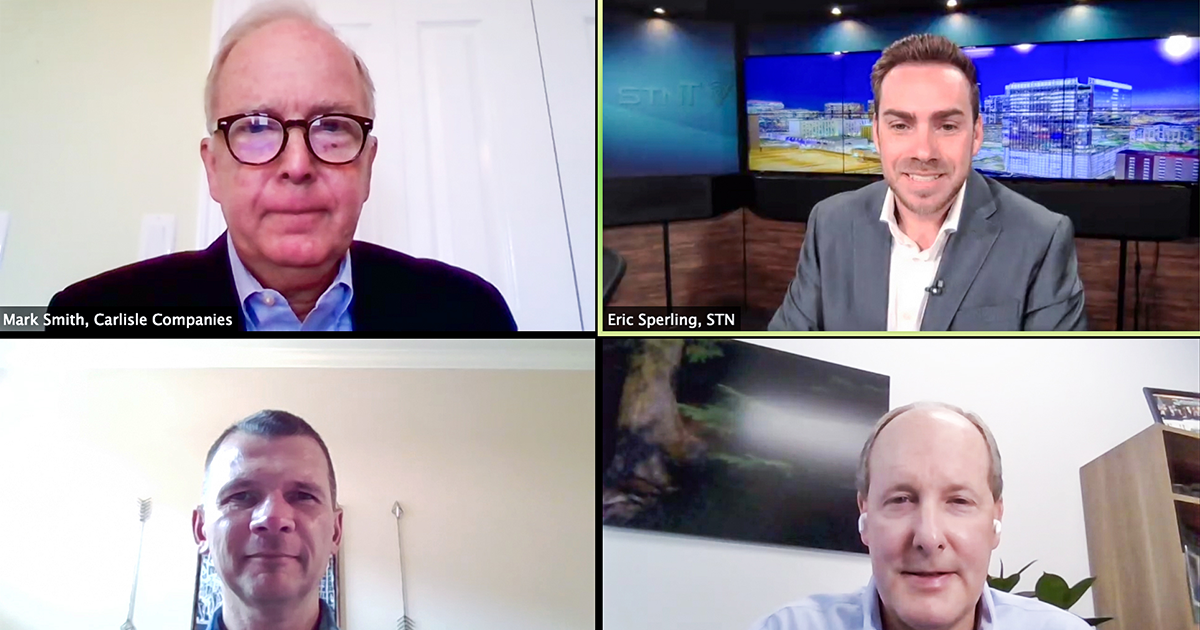

Regional Report: Global Supply Chain
Published: 04/10/2020
Updated: 05/13/2020
A GPEC Virtual Series
Have you ever wondered how you receive your goods or services? It’s thanks in large part to the Global Supply Chain. We take the production and delivery of these items for granted when operating within normal circumstances, but COVID-19 has impacted industry around the world, including the purchasing of goods or services from oversees and domestically.
These dynamic worldwide networks involve millions of people, complex information systems, processes and resources to produce, handle and distribute materials and finished products to customers. You can imagine the volatility which exists in the sector during a public health crisis when manufacturing facilities are shut down for employee safety, workers are quarantined and stuck across borders, and travel and distribution methods have been entirely upended.
On Thursday, the Greater Phoenix Economic Council (GPEC) hosted the second installment of our virtual series ‘Regional Report,’ where we explore industries in Greater Phoenix that have been impacted by COVID-19, and took a deep-dive into how the Global Supply Chain has been disrupted as a result of the pandemic.
Participating in the hour-long discussion were Bruce Hoechner, president & CEO at Rogers Corporation; Ken Stacherski, vice president of integrated supply chain at Honeywell Aerospace; and Marc Smith, vice president of supply chain at Carlisle Companies.
Greater Phoenix is home to many manufacturing, logistics and distribution facilities. These numbers can be attributed to the region’s operating costs, geographical location, fast-track permitting, and access to a skilled and large labor pool thanks to a top-ranked supply chain program at Arizona State University.
Overarching threads on commonality exist in the fact that each panelist talked extensively about some of the problems their respective companies face in terms of supply and demand intricacies, facility closures, and having to be nimble in terms of sourcing and the delivery of products. But these leaders were attuned to the situation as it developed globally as their organizations have vast geographic footprints with Greater Phoenix bedrock.
“We saw this coming in January in our situation in China,” Hoechner said.
Because of preparedness and instituting global continuity plans, the supply chains are still operating relatively smooth, which has allowed them to focus on solutions to the pandemic itself.
Ken Stacherski of Honeywell Aerospace expanded on Honeywell’s efforts to mass produce N-95 masks for global distribution and doing so in Greater Phoenix.
“We’re creating 500 jobs in the valley to build some of the critical PPE. We’re doing this in many places around the world to ensure they’ve got the health and safety equipment to be a part of the solution,” he said. “We do have some of the critical technology that can be helpful to build out the supply base quite quickly around the world, and we’re scaling that to help be proactive and do our part.”
An interesting note from Stacherski was the dependence the Global Supply Chain has on commercial airliners to deliver daily supplies. Regular flights have been reduced significantly as a result of stay-at-home orders, social distancing practices and travel restrictions. Commercial flights once provided supply chain operators an efficient and robust option to transport goods in the cargo hulls of planes. This is no longer a viable route and companies are having to rely on chartered flights and other methods, all while navigating a container shortage due to demand around the world.
“The sliver lining here is the way folks are rallying around to find a solution to the business challenges of today,” Stacherski said. “You can see some really great things going on to solution the problem as we work to find a permanent answer.”
Marc Smith of Carlisle Companies echoed the sentiments and challenges of his counterparts related to Global Supply Chain issues, but it was his thoughts around the good that will come of COVID-19 related to supply chain operations that stuck out.
“I think the businesses that survive will be stronger. We have seen at Carlisle numerous cases where plants have helped one another, departments within a plant have cooperated to get things done quicker and that’s going to become the new normal,” said Smith. “Why does it take six-months to qualify a supplier when we just did it in 10 days under duress?”
As a result of collaboration, ingenuity and technology, the Global Supply Chain for these three companies are still operating to serve the needs of their customer base. There will be good to come of this and Smith noted that because of COVID-19, bureaucracy is going to be gone.
“We can’t afford it anymore and we’re just going to go ahead and do business, and eliminate a lot of that,” he said. “I see companies being stronger.”